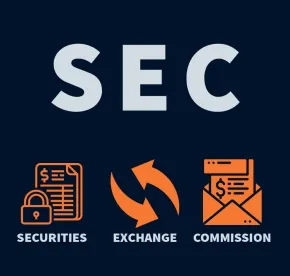At a speech to the University of Pennsylvania Law School’s Capital Markets Association on April 4, 2022, SEC Chair Gary Gensler took the opportunity to again promote his strong desire to add greater regulation and oversight to the digital asset and cryptocurrency markets. While reminding the audience of the SEC’s mission to protect investors, facilitate capital formation, and maintain fair, orderly, and efficient markets, Gensler added two additional policy considerations: guarding against illicit activity and maintaining financial stability. In this light, Gensler focused his remarks on three specific areas of concentration for the SEC: platforms, stablecoins, and crypto tokens.
Platforms
Gensler first addressed crypto-based trading and lending platforms, both centralized and decentralized. Specifically, he noted he has asked the SEC Staff to:
-
Propose regulations for the registration and oversight of crypto platforms, consistent with that of traditional regulated exchanges, including Alternative Trading Systems, in order to safeguard market integrity, protect against fraud, and facilitate capital formation;
-
Address registration and regulation of platforms where the trading of securities and non-securities is intertwined, including coordination with the Commodity Futures Trading Commission in connection with platforms that might trade crypto-based security tokens and some commodity tokens, irrespective of agency jurisdiction;
-
Consider segregation of custody for centralized crypto trading platforms that hold customer assets; and
-
Given that many crypto trading platforms also act as market makers, consider segregation of market-making functions.
Stablecoins
Gensler argued that stablecoins generally are not used in commerce (at least in the United States) and otherwise are not legal tender. Nonetheless, he asserts that stablecoins compete with bank deposits and money market funds, thus raising significant policy concerns: financial stability, use for illicit activity, and the need for investor protection. Gensler argued for more oversight of the use of stablecoins given concerns relating to anti-money laundering, tax compliance, sanctions, and the like, as well as perceived conflicts of interest and market integrity issues. It was unclear from his statements as to whether he has tasked the SEC Staff with a proposal in this area or will otherwise defer to the Department of Treasury and the Federal Reserve Board, although he noted the SEC’s particular interest with respect to money market funds and other types of securities.
Tokens
The greatest area of SEC enforcement to date has been in connection with the offer and sale of crypto tokens that implicate the Supreme Court’s 1946 “Howey Test.” Like his predecessor, Jay Clayton, Gensler asserted that most crypto tokens will pass the Howey Test as investment contracts, highlighting the use of these instruments to raise funds from the public with the expectation that an ecosystem will then be built to support the token and draw users to the project. It is here that Gensler made clear his goal to get crypto tokens that are securities registered with the SEC with the same “market integrity rulebook” as other securities.
In concluding his remarks, Gensler noted that the “robust” investor protection regime currently existing within the traditional U.S. markets should be applied to the crypto market and, by doing so, regulatory arbitrage and loopholes should be eliminated. The SEC has not publicized a timeline for rule proposals in this area. However, given the Biden administration’s expectation that a coordinated regulatory approach to digital assets should be on the president’s desk by September 2022, the next few months may be interesting indeed.
In addition, Gensler’s stated intention to regulate cryptocurrency trading platforms as securities broker dealers may create a federal and state regulatory turf battle over who gets to license, regulate, and supervise such platforms because (i) the Office of the Comptroller of the Currency for at least five years has been trying to implement a national “fintech charter,” (ii) approximately 50 state financial regulatory authorities presently regulate cryptocurrency trading platforms under their respective state money services business codes, and (iii) the Treasury Department’s Financial Crimes Enforcement Network has anti-money laundering regulatory authority over all cryptocurrency trading platforms. Many of these federal and state authorities will want to preserve and, in some cases, expand their existing regulatory dominion over digital asset trading firms, regardless of Gensler’s intention.




 />i
/>i

